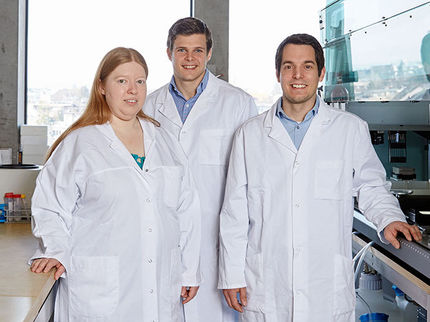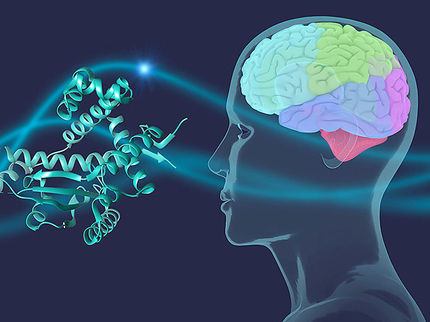Merck Presents First Curious Mind Researcher Award
Advertisement
Merck and the German business journal “manager magazine” presented the Curious Mind Researcher Award for the first time. Barbara Grüner, a medical doctor, received the prize worth € 7,500 in the field of life science. Sascha Fahl, an IT specialist, was recognized with the same prize for his work in the field of IT and robotics. The prizes were granted within the context of the “Hall of Fame of German Research”, to which Franz-Ulrich Hartl, Director at the Max-Planck-Institute for Biochemistry in Martinsried was inducted.
“We should celebrate successful researchers like rock stars – and that is precisely what we are doing with the Curious Mind Researcher Award and the Hall of Fame of German Research. Curious and creative researchers drive science forward and boost innovative strength in Germany,” said Stefan Oschmann, Chairman of the Executive Board and CEO of Merck.
Barbara Grüner (35), an Emmy Noether Junior Research Group Leader, develops new screening techniques for active ingredient combinations in cancer therapy at the West German Cancer Center of Essen University Hospital Germany. After studying molecular medicine in Nuremberg and earning a doctorate in Munich, Grüner was a postdoctoral fellow at Stanford University in California before she returned to Germany in 2017. She was a recipient of a full student scholarship for outstanding students from the Bavarian state government ("Maximilianeum"). In her current project, she is investigating the molecular mechanisms of tumor metastasis in pancreatic cancer.
As a Professor for Computer Science and head of the usable security and privacy research group at Ruhr-University Bochum, Sascha Fahl (33) focuses on how human factors impact topics such as data privacy and IT security. To this end, he also employs methods from the empirical social sciences. After studying Computer Science and earning a doctorate in Marburg, Germany, Fahl interned as a software engineer in the Google Chrome Security team in Silicon Valley. He was a Research Group Leader at the Center for Information Security, Privacy and Accountability (Cispa) of the University of Saarland. He recently received the prestigious Heinz Maier Leibnitz Prize from the German Research Foundation.
With the induction of the medical doctor Franz-Ulrich Hartl, (61), the virtual Hall of Fame of German Research now comprises 23 members. Hartl is Director at the Max-Planck-Institut für Biochemie, Martinsried, Germany. He discovered so-called chaperone proteins and the mechanisms with which these macromolecules give newly produced proteins the shape and folding structure that are important to cell metabolism. In addition, he conducts research into how aberrant folding and assembling of these proteins can lead to diseases such as Alzheimer’s and Huntington’s and how such errors can be avoided by administering medicines.
The three scientists were recognized at a ceremony attended by 100 guests from the worlds of business, science and politics. The ceremony was held at Merck headquarters in Darmstadt inside the M-Sphere, a geodesic pavilion set up by the company especially for the festivities marking its 350th anniversary.
Since 2009, the Hall of Fame of German Research has been honoring outstanding scientists for their superb contributions to the further development of research in Germany. The 22 members include Harald zur Hausen, winner of the 2007 Nobel Prize in Medicine, Stefan Hell, winner of the 2014 Nobel Prize in Chemistry, and Karlheinz Brandenburg, developer of the mp3 data compression method, as well as the former Merck liquid crystal researcher, Ludwig Pohl.
The Curious Mind Researcher Award, which recognizes the work of young German researchers, was granted for the first time. The award honors curious minds under the age of 40, whose work is characterized by originality and excellence, and whose innovative strength is already providing impetus for the further development and future viability of Germany as a business location.


























































